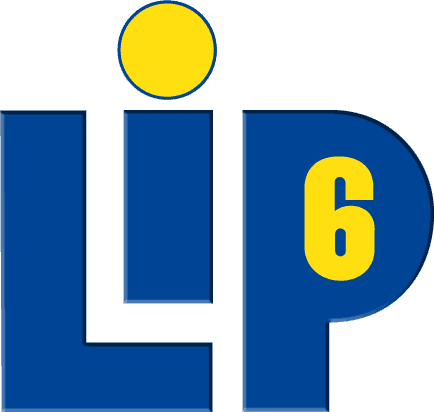On Managing Heterogeneity in Production Cloud Computing Environments
Raouf Boutaba (homepage)
The past few years
have witnessed the rise of cloud computing, a
paradigm that harnesses massive resource capacity of data centers to
support Internet services and applications in a scalable, flexible,
reliable and cost-efficient manner. However, despite its success,
recent literature has shown that effectively managing resources in
production cloud environments remains to be a difficult challenge. A
key reason behind this difficulty is that both resources and workloads
found in production environments are heterogeneous. In particular,
large cloud data centers often consist of machines with heterogeneous
resource capacities and performance characteristics. At the same time,
real cloud workloads show significant diversity in terms of priority,
resource requirements, demand characteristics and performance
objectives. Consequently, finding an effective resource management
solution that leverages resource heterogeneity to support diverse
application performance objectives becomes a difficult problem.
The focus of this talk will be on understanding the research challenges introduced by resource and workload heterogeneity in production cloud environments. We will first provide a characterization of workload and resource heterogeneities found in production data centers, and highlight the key challenges introduced by them. We will then describe our recent work towards addressing some of these challenges. Finally, we will outline several key directions for future research.
Short Bio: Raouf
Boutaba is a professor of computer science at the University of
Waterloo (Canada) and a distinguished visiting professor at POSTECH
(South Korea). He served as a distinguished speaker of the IEEE
Communications Society and the IEEE Computer Society. He is the
founding chair of the IEEE Communications Society Technical Committee
on Autonomic Communications, and the founding Editor in Chief of the
IEEE Transactions on Network and Service Management (2007-2010). He is
currently on the advisory editorial board of the Journal of Network and
Systems Management, and on the editorial board of the IEEE Transactions
on Mobile Computing, the IEEE Communication Surveys and Tutorials, the
KICS/IEEE Journal of Communications and Networks, the
International Journal on Network
Management (ACM/Wiley), the Wireless Communications and Mobile
Computing (Wiley) and the Journal on Internet Services and Applications
(Springer). His research interests include resource and service
management in networked systems. He has published extensively in these
areas and received several journal and conference best paper awards
such as the IEEE 2008 Fred W. Ellersick Prize Paper Award, the 2001
KICS/IEEE Journal on Communications and Networks Best Paper
Award, the IM 2007 and 2009 and the CNSM 2010 Best Paper Awards among
others. He also received several recognitions such
as the Premier's Research Excellence
Award, two Nortel research
excellence Awards, a fellowship of
the Faculty of Mathematics, a David R. Cheriton faculty fellowship, 2
outstanding performance awards at Waterloo and the NSERC discovery
accelerator award. He has also received the IEEE Communications Society
Hal Sobol Award and the IFIP Silver Core in 2007, the IEEE
Communications Society Joe LociCero award and the IFIP/IEEE Dan
Stokesbury award in 2009. He is a Fellow of the IEEE.
Guaranteeing QoS in Networking Services
Harry Perros
(homepage)

Abstract: There is an abundance of networking services offered over the Internet, such as VoIP, teleconference, IPTV, presence, and instant messaging, to name a few. A service can be setup using various protocols, such as, HTTP, SIP, IP Multimedia Subsystem (IMS), the Intellingent Network, and REST. Real-time services, such as VoIP and teleconference, have stringent QoS requirements. That is, the one-way end-to-end delay has to be less than 150 msec (though this constraint can be pushed to as much as to 200 msec or even a little beyond), the jitter should not exceed 30 msec, and the packet loss should be less than 1%. MPLS is a well-known solution for providing QoS in the transport network and it is often combined with the popular DiffServ architecture. However, how does a signaling protocol interact with the QoS-enabled transport network to request a new QoS connection for a multimedia session that is currently being negotiated? In addition, what are some of the problems involved in setting up a QoS connection? In this talk, we will focus on SIP and IMS. We will first examine the salient features of SIP and IMS, and various architectures for developing application servers. Subsequently we will describe the Resource and Admission Control Functions (RACF), a scheme introduced in NGN to ensure QoS for multimedia sessions,which can also work with OpenFlow. Finally, we will conclude with a discussion of some of the performance issues that arise in the deployment of RACF, such as multi-domain routing, and bandwidth allocation so that the end-to-end delay, jitter, and packet loss constraints of real-time applications, such as VoIP and interactive video, are met.
Short Bio: Harry
G. Perros is a Professor of Computer Science, an Alumni Distinguished
Graduate Professor, and the Program Coordinator of the Master of
Science degree in Computer Networks at NC State University. He is an
IEEE Fellow and he has published extensively in the area of performance
modelling of computer and communication systems, and he has organized
several national and international conferences. He has also published
three print books and an e-book, and he is currently completing a book
on networking services. His current research interests are in the areas
of networking services, resource allocation for video traffic under
QoS, and queueing theory.
Optical Networks for Developing Countries
Benjamin Baran
(homepage)
Abstract: Optical
Networks are already a reality in most developed countries but
developing countries are still straggling to build their main
communication backbone using an adequate technology. Several developing
countries still do not have a fully implemented backbone communication,
even using old technologies as ISDN (Integrated Services Digital
Network), ATM (Asynchronous Transfer Mode), SDH (Synchronous Digital
Hierarchy) or SONET (Synchronous Optical Network), but they must
consider a high technological jump to keep up with a globalized world,
considering state of the art optical technology as DWDM (Dense
wavelength Division Multiplexing), a great opportunity to keep up with
the developed world given that there is almost no old infrastructure to
amortize. Consequently, this talk will describe the state of the art in
optical networks, summarizing main research topics in the area as RWA
(Routing and Wavelength assignment), WCA (Wavelength Converter
Allocation), Network Protection and Survivability, QoS (Quality of
Service) in optical networks, among other future trends, emphasizing
the opportunity to developing countries. Finally, the talk will shortly
present some optical network projects in a small country as Paraguay
sharing experiences that may be useful for other developing countries.
Short Bio: Prof.
Benjamín Barán received a degree in Electronic Engineering from the
National University of Asuncion - Paraguay, a M.Sc. in Electrical and
Computer Engineering at Northeastern University – U.S.A. and a Ph.D.
degree in Computer Science at the Federal University of Rio de Janeiro
– Brazil. With more than 3 decades of teaching and research experience
at several universities, he also served as international consultant for
international institutions as ITU, UNDP, UNESCO, BID and World Bank
among others. He received several scientific awards as the Paraguayan
National Science Award in 1996 and the Pan-American PACIS Prize of
Scientific Computing 2012 in Mexico. He was President of the Latin
American Center on Informatics Studies – CLEI and Research Coordinator
at the National Computing Center (CNC) of the National University of
Asuncion. He was also the first Coordinator of Doctoral Studies in
Computing Engineering in Paraguay. With more than one hundred published
papers, his research interests focused on Parallelization and Optical
Networks, Multiobjective Optimization and Evolutionary Computation.









